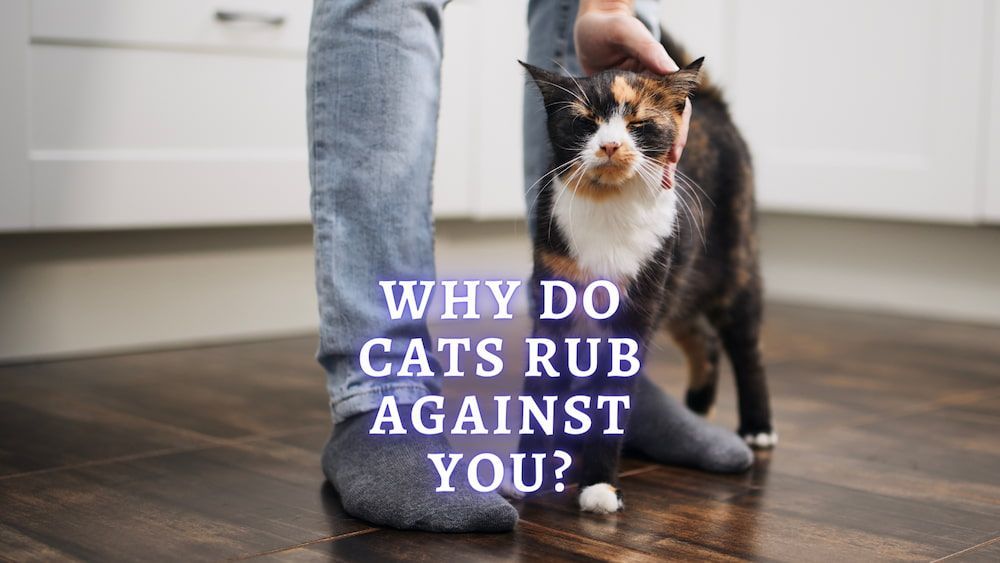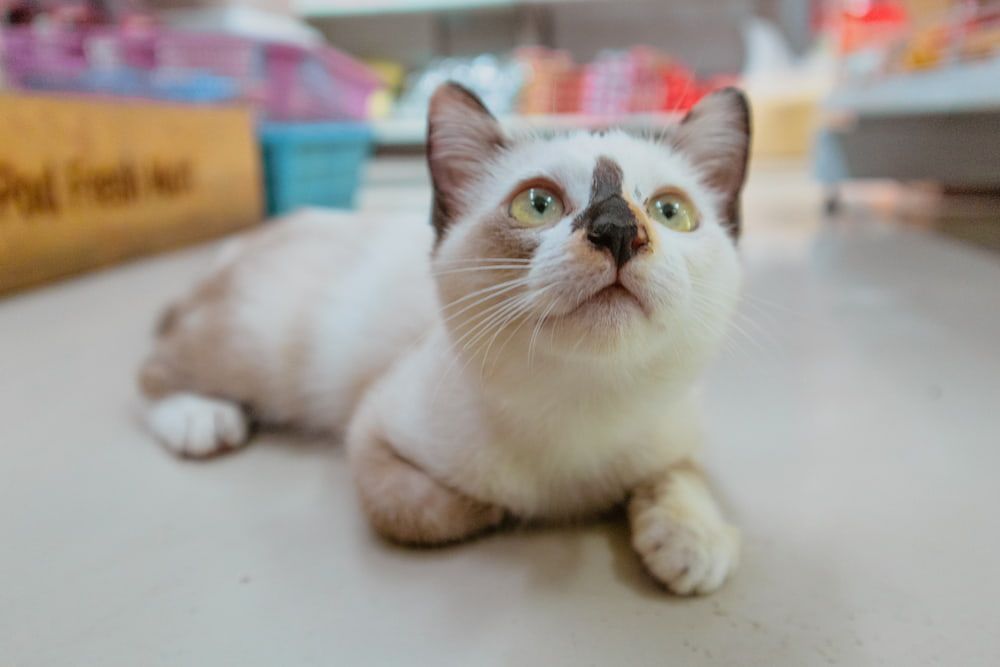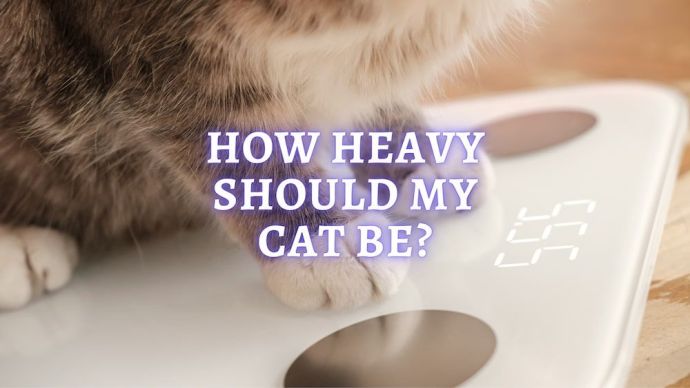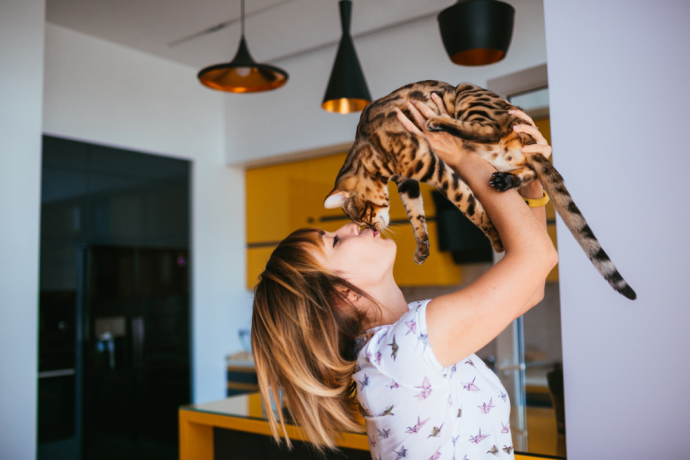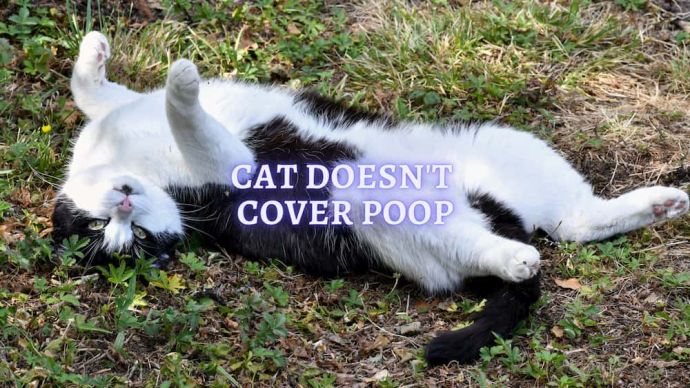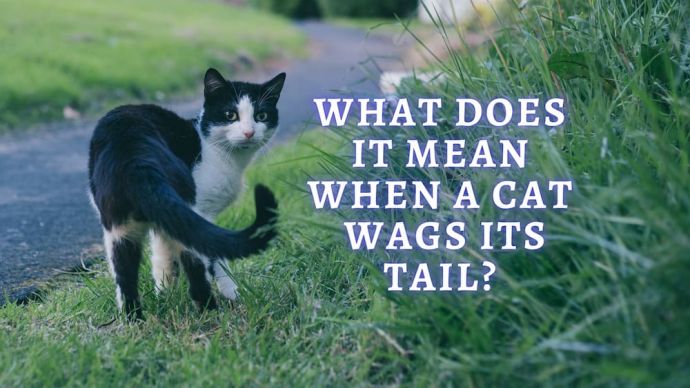Why Do Cats Rub Against You: 8 Most Common Reasons
Written by:
Author: Carol Young
Carol has worked in specialty, emergency, mixed animal and general veterinary practices, and enjoys all aspects of veterinary medicine. Her special areas of interest include anesthesia, critical care, emergency, dentistry, internal medicine and small animal nutrition.
View all 62 articlesLearn about our editorial process and veterinary review board.
Viewed: 93
Updated on: 02/07/2023
Almost every cat owner can tell you that their pets like to rub against their humans and other animals. Although this is completely normal cat behavior, have you ever wondered why?
One thing is for sure, cats are remarkable creatures, and because of their nature, they are a constant source of fascination and fun.
In addition to being quite independent and self-sufficient, cats can also be very loving and affectionate and seem to enjoy rubbing up against family members. Some say that cats like to rub up against us as a sign of affection, trust, or seeking out attention, and since cats can’t talk, maybe a good rub means “I love you.”
There are several reasons why do cats rub against you, pets, and even inanimate objects, so let’s explore some of the whys.
1. Trust
Many owners will confess that their cats don’t particularly like change, and if they are adopted into a new household, it may take several days or weeks to trust their new owners. Although each animal is different, it may take months to years to form a bond of trust between a feline and a new pet parent.
Since cats can’t verbalize like humans, they communicate quite a bit with their bodies. For example, jumping up next to you on the couch, meowing for a treat, or rubbing up against your legs is how your feline friend tells you he trusts you. By using body language, your pet can let you know that he is not afraid to come close and enter your personal space. Fearful and distrustful cats will give you a wide berth, so when they rub up against you or other family members, it means he trusts you and has nothing to fear.
2. Affection
When a cat rubs their entire body, forehead, or cheeks along your legs while you’re making dinner or watching TV, it can also signify affection, especially when they’re purring simultaneously. Any owner will tell you that this kind of behavior is endearing and helps to strengthen the feline-human bond. There is something special when your feline friend jumps on your lap, and rubs against your chest with their head while purring and seeking out a good scratch.
3. Greetings
In addition to feeling affectionate, cats may rub up against you as a way to say “Hi, I’m happy to see you.” This may be especially true if you’ve been gone all day at work, and your pet is welcoming you home with a hearty head bump and rub.
4. Your Cat is in Heat
People with unspayed female cats may notice that their girls may be more affectionate and tend to rub against you more often. They may also seek a little romance with unaltered male cats. If you have an unspayed or unneutered kitty, mating season is always a time in the cat world when they may do more head bunting and seek out companionship with other cats and other animals.
READ MORE: Cat in Heat
5. Marking You Through Scent
Although rubbing against you is a sign of a happy greeting and show of affection, it can also be that your kitty is claiming you through scent. Cats are naturally territorial creatures and will mark their pet parents and other household members through scent glands located in their cheeks.
When kitties rub against objects and people, they transfer their cats scent, claiming us as a family member and one of their “own.” Head-butting, nuzzling your face, or weaving through your legs transfers their scent to you, and in a way shows that they accept you into their environment.
Incidentally, felines mark their territory intermittently, especially on you, objects, or other pets in their environment since their scents don’t last forever and need to be repeated for a cat to feel calm.
6. Gathering Information
Rubbing is a learned behavior that mothers pass to their kittens, and although it is usually a sign of marking territory, greetings, or adoration, it can also be a way to gather information. Cats are very scent-oriented, and a way to tell where you’ve been and what you’ve been doing is to rub up against you, and perhaps give your shoes or pant legs a sniff.
7. They Need Something
Cats communicate in a number of ways, from meowing to pawing at your face at 3:00 am in the morning. Rubbing, headbutting, and sometimes a little nip can mean that your feline pal wants something, like attention, food, or playtime. If it’s dinner time, your kitty may be hungry and will communicate that to you by rubbing against the cabinet where you keep their food, or they may want some attention.
Sometimes cats may rub against us to signal that something is wrong, and here’s when it’s important to pay attention to your pet. It is important to monitor and be familiar with your pet’s behavior so that you can “translate” this behavior and understand if they needs something from you.
8. Communal Scent
Feral feline groups and wild feline species often rub against each other to leave their pheromones on the group, creating a scent marker that they belong to a particular group. This helps them identify strangers who smell different and may be a threat to the group. Feline pheromone smells are also associated with mating, health status, and aggression and can help members identify their place in the hierarchy of a group.
READ MORE: Why Does My Cat Stare At Me? Felines Behavior and Body Language Explanation
Should I worry if my cat is rubbing against things all the time?
Typically you don’t have to be worried about your cat rubbing against things all the time. Still, if your kitty suddenly starts rubbing against you, other objects, or other pets and won’t stop, it might be a good time to schedule an appointment with your veterinarian. As with all behavior changes, it’s best to rule out any medical problems.
Should I Let My Cat Rub Against Me?
Rubbing up against you is typical behavior; some cats may do it more often than others. It’s up to you if you let your kitty rub up against you; remember that it’s one of the many ways your pet communicates with you and shows you affection and acceptance. However, if you’re off to an important meeting at the office or a fancy dinner, you might not want to be covered with cat hair. In that case, investing in a hair lifter or other products to keep your clothes fuzz free may be a good idea.
READ MORE: Why Does My Cat Attack My Legs?
People also ask:
Why do cats rub up against your leg?
Cat body language can be complicated, and oftentimes rubbing up against your leg means “hello,” or “I love and trust you.” Other times it just means your cat is trying to get your attention or gathering information about where you’ve been.
However, in most cases, rubbing against your leg comes down to pheromones. Pheromones are deposited through glands in the cheeks and are chemical messages that members of the same species can only understand. Only cats can smell pheromones, and when your kitty rubs against something, they’re depositing these pheromones and relaying specific messages like “you are my human” or “I’m looking for a mate.”
Do cats rub on you because they love you?
Our feline friends show affection in several ways, whether pawing at you and “making biscuits,” purring, or just sitting on your lap. They can also show affection and love by rubbing against you, head-butting, and even giving you little “love bites.” In any case, cats with strong attachments to their humans will often rub against them and want to be close to them.
How do you know if a cat likes you?
If a cat likes you it will be pretty obvious. Felines, as a species, tend to be more circumspect and observant before approaching a new person or object. Once they feel they can trust you and knows you, they will approach you, rub against you, perhaps meow, and start kneading your chest or stomach. In this way, they may tell you they like you and claim you belong to them.
What does it mean when a cat rubs against you and purrs?
When your cat jumps on your lap, head-butting, rubbing against you, and purring, it can mean more than just one thing. It can mean he loves you, is glad to see you, trusts you, and wants some companionship and attention. Cats often purr in a relaxed environment and feel safe and calm. By rubbing and purring, your cat is communicating their emotions and feelings.
READ MORE: Signs your Cat Loves You
 Cat Veterinary Tips Cat Stomach Gurgling: Vet Advice on Why is Your Cat Stomach Gurgling?
Cat Veterinary Tips Cat Stomach Gurgling: Vet Advice on Why is Your Cat Stomach Gurgling? - 33733
- 4
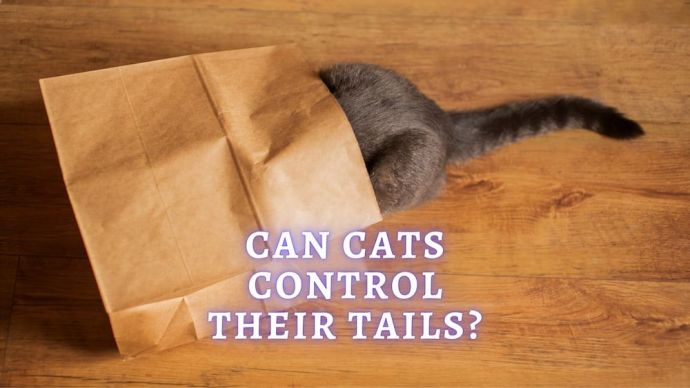 Cat Care Can Cats Control Their Tails? How Much Control Do Cats Have Over Their Tails?
Cat Care Can Cats Control Their Tails? How Much Control Do Cats Have Over Their Tails? - 66
- 0
 Cat Care Why Does My Cat Attack My Legs? 10 Reasons Why and What To Do About It (Vet-Approved Advice)
Cat Care Why Does My Cat Attack My Legs? 10 Reasons Why and What To Do About It (Vet-Approved Advice) - 45082
- 21
 Cat Care Why Does My Cat Attack My Legs? 10 Reasons Why and What To Do About It (Vet-Approved Advice)
Cat Care Why Does My Cat Attack My Legs? 10 Reasons Why and What To Do About It (Vet-Approved Advice) - 45082
- 21
 Cat Veterinary Tips Cat Stomach Gurgling: Vet Advice on Why is Your Cat Stomach Gurgling?
Cat Veterinary Tips Cat Stomach Gurgling: Vet Advice on Why is Your Cat Stomach Gurgling? - 33733
- 4
 Cat Veterinary Tips My Cat Lost its Voice: Can Cats get Laryngitis? (Vet Advice)
Cat Veterinary Tips My Cat Lost its Voice: Can Cats get Laryngitis? (Vet Advice) - 22890
- 13









